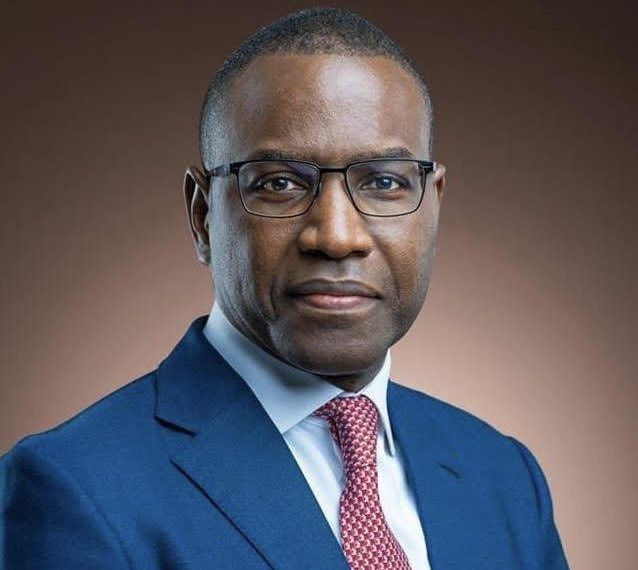AfDB Presidential Contender Targets $4.5 Trillion Domestic Capital Drive to Power Africa’s Development
A leading contender in the race for the African Development Bank (AfDB) presidency has unveiled a bold strategy to mobilise up to $4.5 trillion in domestic private capital to finance Africa’s development priorities, while cutting back on reliance on costly external borrowing.
The candidate’s vision, centred on financial innovation, public-private partnerships and regional integration, seeks to unlock Africa’s underutilised private wealth to fund critical infrastructure, education, healthcare and energy projects across the continent. At the heart of the strategy is a multi-pronged approach to tap institutional investors, pension funds, sovereign wealth entities and high-net-worth individuals—resources often overlooked in development financing discussions.
Speaking on the sidelines of a continental economic forum, Senegal’s Hott Amadou stated: “Africa’s future lies in its ability to finance its own growth. We can no longer depend solely on external debt which has become unsustainable for many of our nations. Mobilising domestic capital is not just necessary—it is urgent.”
Estimates suggest that Africa’s domestic private capital could total as much as $4.5 trillion if effectively harnessed. Yet, despite progress in financial market maturity in countries such as South Africa, Kenya and Nigeria, constraints such as limited liquidity, fragmented regulations, and a dearth of bankable projects continue to stifle capital mobilisation.
The presidential aspirant has proposed enhanced coordination between governments and financial regulators to harmonise investment frameworks, ease cross-border capital flows, and promote market transparency. The vision also calls for targeted capacity building within local financial institutions to improve their ability to manage and finance large-scale development initiatives.
With Africa’s external debt reaching alarming levels—some nations are spending over 20% of their government revenues on debt servicing—calls for alternatives to debt-financed growth have intensified. Analysts warn the situation is eroding fiscal space for social and economic investments.
“Domestic resource mobilisation can serve as a shield against external shocks while deepening Africa’s financial sovereignty,” remarked the candidate.
Infrastructure investment—particularly in renewable energy, digital connectivity and transport—is central to the agenda. The World Bank estimates Africa needs around $130 billion annually to close its infrastructure deficit. Mobilising domestic capital is seen as key to bridging this gap in a way that aligns with climate adaptation and sustainability targets.
The aspirant is also championing broader deployment of public-private partnerships (PPPs) to reduce investment risk and crowd in private finance. While several African countries have initiated PPP frameworks, results remain mixed due to issues of enforcement, transparency, and political stability.
Financial inclusion equally features prominently, with the candidate advocating support for small businesses, women entrepreneurs, and rural populations. Tools such as mobile money and fintech platforms are seen as instrumental in expanding access to credit and capital markets—especially in economies with limited formal banking reach.
On regional cooperation, the strategy prioritises full implementation of the African Continental Free Trade Area (AfCFTA) as a means of deepening capital market integration and creating scale for investment. The AfDB is expected to play a lead role in harmonising fiscal and regulatory policies across member states.
“Our success as a continent will depend on how well we integrate our markets—not only for goods and services, but also for capital and finance,” the candidate stressed.
Multilateral partners are not left out, but the candidate envisions a recalibrated role for them. Rather than acting as primary financiers, donors and international financial institutions should offer technical assistance, derisking instruments, and capacity development to support domestic capital flows.
Recognising governance as a cornerstone of investor confidence, the candidate has also pledged to prioritise anti-corruption measures, improved public finance disclosure, and robust legal and institutional reforms.
The vision aligns with global imperatives for sustainable and inclusive development, with the candidate positioning the AfDB as a facilitator of investments that meet ESG (Environmental, Social and Governance) criteria. This approach is expected to appeal to both African and international investors seeking long-term, responsible investment opportunities.
The AfDB presidency remains a closely watched contest, given the Bank’s portfolio—currently exceeding $40 billion—and its influential role in Africa’s development trajectory. The incoming president will shape not only the Bank’s strategy but also its ability to support African governments, private investors, and development partners in advancing the continent’s economic transformation agenda.
As the campaign intensifies, the candidate’s domestic capital mobilisation strategy is expected to resonate with stakeholders seeking sustainable, home-grown solutions to Africa’s long-standing development financing challenges.



